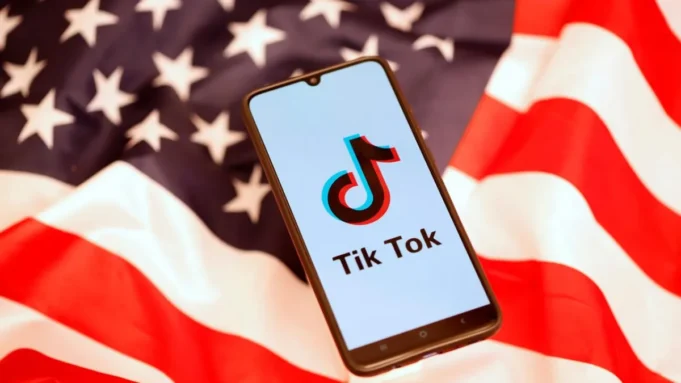TikTok: What It Means for Users and the Future of the Platform
Team Youngistaan
TikTok: The clock is ticking for TikTok in the United States. A law requiring the popular social media platform to either transition to a new, non-Chinese owner or face a nationwide ban is set to take effect on Sunday. This decision comes amidst growing concerns about national security and data privacy linked to TikTok’s Chinese ownership. With little indication that the company’s parent, ByteDance, will secure a sale before the deadline, more than 170 million American users could soon lose access to the platform.
This potential ban marks a significant moment, as TikTok has emerged as one of the most influential and widely used social media platforms in recent years. Its impact on entertainment, news dissemination, community-building, and even small business operations has made it a formidable competitor to established American platforms like Instagram and YouTube. Yet, its very existence in the U.S. now hangs by a thread.
Supreme Court Decision and the Biden Administration’s Role
The Supreme Court’s decision on Friday to uphold the ban law has propelled the situation closer to a definitive outcome. In response, TikTok released a statement late Friday expressing the urgency of the situation. Without direct intervention from the Biden administration, the platform announced that it would be forced to shut down operations in the U.S. on Sunday.
TikTok’s statement read, “The statements issued today by both the Biden White House and the Department of Justice have failed to provide the necessary clarity and assurance to the service providers that are integral to maintaining TikTok’s availability to over 170 million Americans. Unless the Biden Administration immediately provides a definitive statement to satisfy the most critical service providers assuring non-enforcement, TikTok will be forced to go dark on January 19.”
The Biden administration has so far refrained from providing a definitive directive on the matter, instead indicating that the enforcement of the ban would fall to the incoming Trump administration, which takes office the day after the deadline. “Our position on this has been clear: TikTok should continue to operate under American ownership,” a Biden administration official told CNN. However, the timing of the ban—set to go into effect over a holiday weekend and just one day before the presidential transition—adds layers of uncertainty.
What Happens If the Ban Takes Effect?
If the ban is enforced, TikTok is expected to disappear from the Apple App Store and Google Play Store, preventing new downloads of the app. Existing users may still have access to TikTok for a limited time, but without regular security updates, the platform could become glitchy or cease functioning altogether. For many users, the prospect of using a virtual private network (VPN) to bypass the ban has been floated as an option, though this workaround could come with its own challenges and risks.
The central issue driving the ban is national security. U.S. officials have expressed concerns that the Chinese government could pressure ByteDance into sharing the personal data of American users. This data could potentially be used for intelligence operations or the spread of Chinese-backed disinformation. While there is no concrete evidence that such misuse of data has occurred, the mere possibility—fueled by China’s strict national security laws—has been enough to rally bipartisan support for the ban.
In 2022, a report suggested that employees in China had repeatedly accessed U.S. user data, intensifying these fears. TikTok has denied the allegations and highlighted efforts to safeguard user data, including storing it on U.S.-based servers owned by Oracle. However, these measures have not been enough to assuage policymakers’ concerns.
Legislative Backing for the Ban
The ban on TikTok has gained widespread bipartisan support in Congress. In April 2023, President Joe Biden signed a law mandating that TikTok either be sold to a non-Chinese entity or be banned entirely in the U.S. The legislation passed the House of Representatives with a resounding bipartisan vote of 360-58. To expedite its passage, House Republican leaders attached the TikTok bill to a broader package funding military assistance for Ukraine and Israel, compelling the Senate to approve the package in a single vote.
The Biden administration also took preliminary steps to address security concerns earlier in the year, requiring all executive branch employees to remove TikTok from their devices within 30 days of the directive. These actions reflect the growing perception of TikTok as a potential threat to national security.
The Trump Administration’s Stance
Although the idea of banning TikTok originated during Donald Trump’s first presidency, the former president has since reversed his position. Trump has indicated his desire to save the platform and explore potential solutions that would allow it to continue operating in the U.S.
The timing of the ban, however, complicates matters. Trump takes office the day after the ban’s implementation deadline, leaving little time for immediate intervention. Sources familiar with his plans suggest that Trump may seek to delay the ban to negotiate a potential sale of TikTok’s U.S. assets. The law allows for a 90-day extension of the deadline if significant progress toward a sale is demonstrated. However, ByteDance has not indicated any willingness to sell the platform, further clouding the path forward.
Potential Buyers and the Role of TikTok’s Algorithm
One of the most contentious aspects of a potential TikTok sale is the platform’s algorithm, which powers its popular “For You” feed. Chinese officials have reportedly signaled that they would not allow the algorithm to be included in any sale of TikTok’s U.S. operations. Without the algorithm, any new owner would face the daunting task of rebuilding the platform’s functionality and user experience from scratch.
Several potential buyers have expressed interest in acquiring TikTok’s U.S. assets. A group led by billionaire Frank McCourt and investor Kevin O’Leary has made a formal bid, proposing to rebuild the platform with greater transparency and user control over data. However, ByteDance has not engaged meaningfully with potential buyers, reportedly waiting for the Supreme Court’s ruling before entering serious negotiations.
Another speculative buyer is Elon Musk, owner of X (formerly Twitter). Chinese officials have reportedly considered Musk a favorable candidate for acquiring TikTok, though neither Musk nor ByteDance has publicly commented on the possibility.
Impact on Users and Creators
The looming ban has sparked concerns among TikTok creators and fans, many of whom rely on the platform for their livelihoods or as a creative outlet. Influencers like Eli Rallo and Joanne Molinaro (The Korean Vegan) have expressed anxiety about the potential loss of income and community if TikTok is no longer accessible. For businesses that use TikTok for marketing and sales, the ban could disrupt operations and force a pivot to other platforms.
Eva Galperin, director of cybersecurity at the Electronic Frontier Foundation, highlighted the practical implications of the ban for users. She noted that while existing users may retain temporary access to TikTok, the app’s eventual decline in functionality could render it obsolete.
The Road Ahead
Even if TikTok is banned, a sale to a non-Chinese owner could potentially restore access for U.S. users. However, such a transition would take time and result in significant changes to the platform. Without the algorithm, TikTok’s U.S. version would likely differ considerably from the current app, potentially requiring global users to download a separate version to interact with American content.
As of now, the value of TikTok’s U.S. assets, excluding the algorithm, is estimated to be between $40 billion and $50 billion. Frank McCourt’s group has not disclosed its offer, though McCourt previously suggested a valuation of around $20 billion. The ultimate fate of TikTok’s U.S. operations remains uncertain, with more questions than answers as the deadline looms.
For the millions of Americans who use TikTok daily, the potential ban represents a seismic shift in the social media landscape. Whether through a sale, a policy reversal, or the enforcement of the ban, the next few days will shape the future of one of the world’s most popular platforms.







